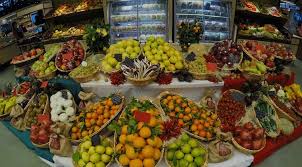In September 2025, Saudi Arabia’s Ministry of Environment, Water, and Agriculture (MEWA) introduced new regulations for the packaging and labeling of fruits and vegetables sold in public markets. These rules aim to enhance food safety, promote environmental sustainability, and support the nation’s Vision 2030 transformation agenda.
Key Features of the New Regulations
The new regulations mandate that all packaged agricultural products display a label containing specific information. This includes:
- Product Name: Clearly identifying the type of produce.
- Net Weight: Indicating the weight of the product.
- Packaging Date: Providing the date when the product was packaged.
- Country of Origin: Stating where the product was grown.
- Supplier or Producer Details: Including the agricultural registration number, name, and logo.
These requirements are designed to improve transparency, traceability, and consumer trust in the food supply chain.
Environmental Considerations
The regulations also emphasize the use of recyclable, food-grade compliant packaging materials that can withstand pressure and allow airflow. This approach aligns with Saudi Arabia’s broader efforts to reduce environmental impact and promote sustainable practices in the food industry.
Compliance and Enforcement
Suppliers and vendors are required to comply with these new standards. MEWA has indicated that failure to adhere to the regulations may result in penalties. The ministry has also outlined a timeline for implementation, providing businesses with adequate time to adjust their practices.

Industry Reactions
The introduction of these regulations has been met with a mix of support and concern from various stakeholders. Environmental groups have praised the move as a step towards sustainability, while some businesses have expressed concerns about the costs associated with compliance. However, many industry experts believe that the long-term benefits, including improved consumer confidence and market access, will outweigh the initial challenges.
Impact on Consumers
For consumers, the new labeling requirements mean greater access to information about the products they purchase. This transparency allows individuals to make more informed decisions regarding the safety, quality, and origin of their food, fostering a sense of trust in the marketplace.
Economic Impact of the New Packaging and Labeling Rules
The introduction of new rules for packaging and labeling of fruits and vegetables is expected to have a significant impact on Saudi Arabia’s agricultural and retail sectors. By standardizing labels and ensuring product traceability, the Kingdom aims to boost both domestic sales and international exports. Retailers and suppliers who comply with these regulations can gain a competitive edge, as their products will be perceived as safer, higher quality, and more reliable by consumers and foreign buyers alike. This may lead to increased market opportunities for Saudi agricultural products in international markets, especially in regions where strict food labeling and quality standards are a prerequisite for import.
Technology Integration and Digital Traceability
To ensure compliance with the new rules, many producers are turning to technology solutions, including digital labeling systems and QR codes. These tools allow consumers to access detailed information about the product’s origin, cultivation methods, and supply chain journey directly from their smartphones. This not only increases transparency but also encourages a culture of accountability among producers. The use of smart packaging technology may also help reduce food waste by tracking shelf life and storage conditions more accurately.
Promoting Consumer Awareness
One of the central goals of the new regulations is to increase consumer awareness about the products they purchase. With clearly visible labels, consumers can make informed choices about nutrition, freshness, and origin. This transparency is expected to foster trust in the marketplace, encouraging shoppers to prioritize quality over convenience. Furthermore, educational campaigns led by the Ministry of Environment, Water, and Agriculture aim to inform the public about reading labels correctly and understanding the benefits of purchasing products that adhere to the new standards.
Supporting Sustainable Practices
In addition to consumer benefits, the regulations encourage sustainable practices among producers. By mandating recyclable and environmentally friendly packaging, the government hopes to reduce plastic waste and encourage more responsible production methods. Over time, this could lead to broader changes in the Saudi agricultural sector, pushing producers to adopt greener farming techniques, reduce carbon footprints, and contribute to national sustainability goals.
Building a Global Reputation
Through these reforms, Saudi Arabia is positioning itself as a country that values food safety, transparency, and sustainability. Such initiatives not only protect domestic consumers but also enhance the Kingdom’s reputation in global agricultural trade. International buyers are more likely to trust Saudi products, knowing that they meet strict quality standards and comply with modern packaging and labeling requirements
Alignment with Vision 2030
The implementation of these regulations is part of Saudi Arabia’s Vision 2030 initiative, which aims to diversify the economy and improve various sectors, including agriculture and food safety. By modernizing food labeling and packaging standards, the Kingdom seeks to enhance its position in the global food market and ensure the well-being of its citizens.
Looking Ahead
As the new regulations take effect, MEWA plans to monitor compliance and assess the impact on the food supply chain. The ministry has indicated that it will continue to engage with industry stakeholders to refine and improve the standards as necessary, ensuring that they meet the evolving needs of both consumers and businesses.
Do follow us: Instagram
Read More: Saudi Arabia’s Safari Retreat Just 1 Hour from Riyadh



